Search Results
Showing results 21 to 40 of 60

Convection
Source Institutions
In this activity, learners model atmospheric convection currents using food coloring, water, and clear cups. Activity includes step-by-step instructions, STEM connections, and more.
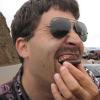
Cookie Subduction
Source Institutions
This is a quick activity that shows how large amounts of rock and sediment are added to the edge of continents during subduction.
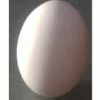
A Stand-up Egg
Source Institutions
In this science trick, learners get an egg to stand-up on its long-axis vertical to a table's top.
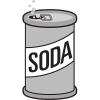
Physics in the Kitchen: Sink or Swim Soda
Source Institutions
In the kitchen, learners can perform their own density investigation.
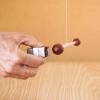
Repulsive Grape: Diamagnetism
Source Institutions
Do grapes, yes the grapes from the grocery store, move in the presence of a very strong magnet?
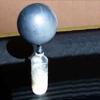
Yeast-Air Balloons
Source Institutions
In this activity, learners make a yeast-air balloon to get a better idea of what yeast can do. Learners discover that the purpose of leaveners like yeast is to produce the gas that makes bread rise.
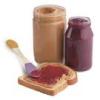
Peanut Butter and Jelly Robot
Source Institutions
This is an activity about robotics programming. Learners will discover how precise programmers have to be as they instruct a friend to make a peanut butter and jelly sandwich.
Pepper Scatter
Source Institutions
In this activity, learners explore the forces at work in water. Learners experiment to find out what happens to pepper in water when they touch it with bar soap and liquid detergent.
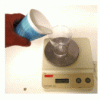
Toast a Mole!
Source Institutions
In this quick activity, learners drink Avogadro's number worth of molecules - 6.02x10^23 molecules!
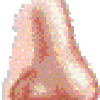
Expose Your Nose
Source Institutions
In this simple exploratory activity (1st activity on the page), blindfolded learners try to identify mystery items by smell.
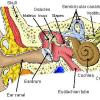
Model Eardrum
Source Institutions
In this activity (last activity on the page), learners make a model of the eardrum (also called the "tympanic membrane") and see how sound travels through the air.
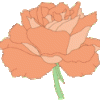
Smell Match
Source Institutions
In this matching activity (3rd activity on the page), learners use their sense of smell to match pairs of opaque containers filled with various smelly items like orange peel, roses, or moth balls.
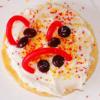
Edible Model of the Sun
Source Institutions
In this activity, learners make "solar cookies," edible models of the Sun's outer layers using sugar cookies and toppings.
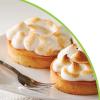
Bake Ice Cream in Your Oven
Source Institutions
In this a hands-on activity, learners explore how to put ice cream in an oven without it melting. Ideas in this activity include insulation and cooking.
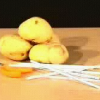
Potato Straw
Source Institutions
In this physics demonstration, learners are challenged to insert a straw the furthest into a potato.

Chocolate (Sea Floor) Lava
Source Institutions
In this edible experiment, learners pour "Magic Shell" chocolate into a glass of cold water. They'll observe as pillow shaped structures form, which resemble lavas on the sea floor.
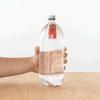
Condiment Diver
Source Institutions
In this hands-on activity, learners make the world's simplest Cartesian diver, using only a plastic bottle, some water, and a condiment packet.
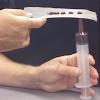
Hot Sauce Hot Spots
Source Institutions
In this activity, learners model hot spot island formation, orientation and progression with condiments.
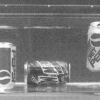
Sink or Swim?
Source Institutions
Learners observe a tank of water containing cans of diet and regular sodas. The diet sodas float and the regular sodas sink. All the cans contain the same amount of liquid and the same amount of air.
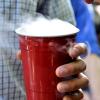
Light Soda
Source Institutions
In this activity, learners sublimate dry ice and then taste the carbon dioxide gas.
